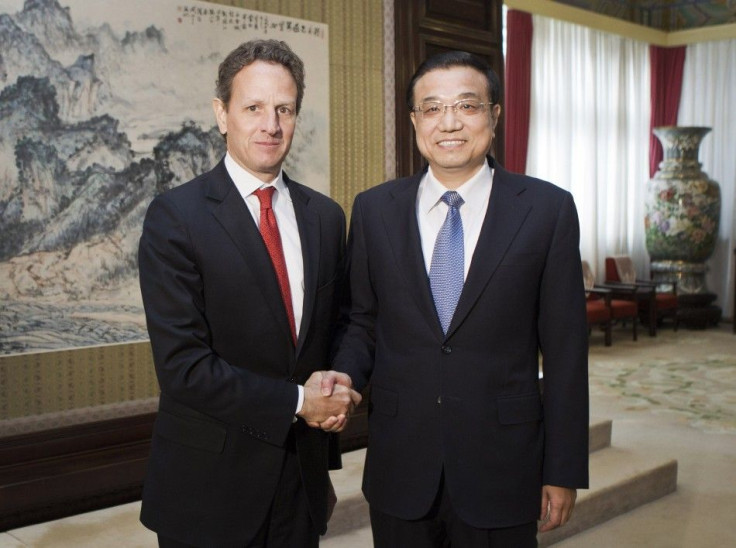Geithner Presses China to Support Sanctions Against Iran

U.S. Treasury Secretary Timothy Geithner is in China seeking Beijing’s support on western sanctions against Iran, particularly its oil sector.
As the war of words between Iran and the U.S. and European Union escalates with threats and counter-threats from both sides, gaining China’s endorsement of tougher sanctions against Teheran would likely squeeze the Iranians into a desperate position.
Iran is believed to be developing nuclear weapons, according to a report from the United Nations atomic watchdog.
Geithner has already conferred with Vice Premier Wang Qishan and is scheduled to meet with Premier Wen Jiabao, Vice President Xi Jinping and Vice Premier Li Keqiang on Wednesday.
Vice President Xi, who is slated to become the next leader of China, told Geithner in Beijing: I believe your visit will go a long way to promote the stability and further growth of our economic relationship.”
Geitner responded: “On economic growth, financial stability around the world, on non-proliferation, we have what we view as a very strong co-operative relationship with the government and we are looking forward to building on that.”
However, given China’s insatiable appetite for natural resources and commodities to feed its massive economic engine, it is doubtful that the Chinese will support sanctions on Iran.
BBC reported that almost one-third of Iran’s oil exports go to China. Or, put another way, 11 percent of Chinese oil imports comes from Iran.
In the past, China (along with Russia) has typically rejected sanction measures by the U.S.
China has, however, supported UN resolutions calling on Iran to cease its uranium enrichment program.
Geithner will next voyage to Tokyo to meet with Japanese officials about imposing oil sanctions on Iran (Japan buys about 9 percent of its oil from the Iranians).
John Lee of the Centre for International Security Studies at the University of Sydney, commented to Reuters: “I think the key here is to try to isolate China. If the U.S. can effectively get Japan - but more importantly Russia - on side, then China will feel a lot of pressure to join onto any U.S.-led multilateral sanctions. If it’s just a bilateral sanction between Geithner and his counterparts, then I think Washington will achieve very little this week.”
Interestingly, Premier Wen is scheduled to visit a number of Middle East countries this weekend, including Saudi Arabia, leading some analysts to speculate that China might be seeking to reduce its dependence on Iranian oil.
Although Iran is China’s third-biggest oil supplier, Beijing has already cut imports in the New Year in a disagreement over contract terms.
“Strategically, it is very much in China’s interest to have a strong Iran to block U.S. dominance of the Middle East and Southwest and Central Asia. It’s not just about crude supply,” Willem van Kemenade, a Beijing-based scholar on Chinese foreign policy, told Reuters.
“Preventing Iran from getting into a crisis or regime collapse is very much in China’s interest.”
© Copyright IBTimes 2024. All rights reserved.











